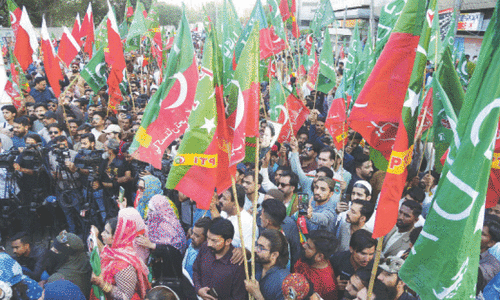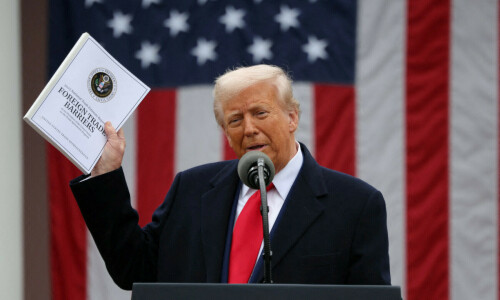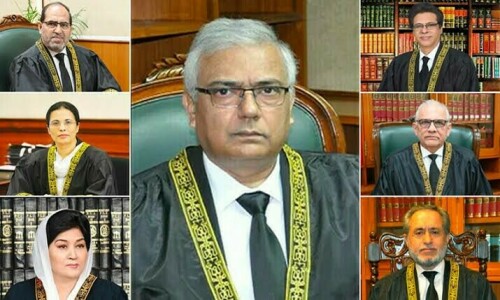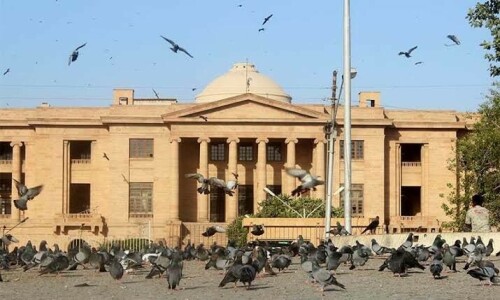KARACHI: A book titled Jam Saqi Communist Sazish Case by Aslam Khwaja was launched at the Arts Council on Wednesday evening.
Speaking about what went into the making of the publication, the author mentioned those who had helped him in the research process and added since the work involved court proceedings he tried to keep the language simple for the readers.
Haris Gazdar congratulated the writer for coming out with the book. He said from the time when he was a young boy, he’d been hearing names such as Jam Saqi, Badar Abro and Jamal Naqvi at his house and consider them his heroes.
The book, he claimed, is a key chapter in the communist movement at the time (1980-1987) signifying what would be the relationship between a revolutionary party and a democratic movement.
Journalist Mazhar Abbas said the case began in an important period of the country’s history: martial law had been imposed two years ago, Zulfikar Ali Bhutto was executed, a PIA plane was hijacked in 1981 and the MRD movement had taken off in 1983… and all of that was focused on Sindh.
Mr Abbas also raised the question as to why the military courts allowed the politicians to defend Jam Saqi.
Dr Riaz Shaikh lauded the way with which the author has collected material (court proceedings, oral history etc) for the book. He argued that the allegations levelled against the seven people that were put behind bars were ridiculous. Also, the most important things recovered from the accused at the time were two books: Soviet Union Mein Musalman and Moscow Olympics.
“The book that Aslam Khwaja has published is an attempt to correct the records… It was the strictest martial law period and yet a trial took place. Today, no trial takes place and people go missing. We at least knew that those seven people were in jail,” he said.
Prof Dr Tauseef Ahmed Khan pointed out the most moving piece of writing in the book is by Riaz Sohail who talks about his mother and how in those days the families of the prisoners suffered.
Mentioning a mistake in the book, Dr Khan underlined that the author has wrongly painted the character of the Communist Party (CP) in the Bhutto era. It’s true that the CP opposed the PPP but when the PNA movement started the CP was the first party which said that the movement had the backing of Gen Ziaul Haq and the US, he added.
Hameeda Ghanghro said it’s been 45 years since the case took place, but even today the idea of a revolution, a reality and a struggle still lives in her thoughts.
Sohail Sangi, who was one of the seven prisoners mentioned in the book, said the truth is that if Nazeer Abbasi hadn’t been martyred, the case wouldn’t have gained prominence. “It was his martyrdom that saved our lives.”
Published in Dawn,June 10th, 2022
















































